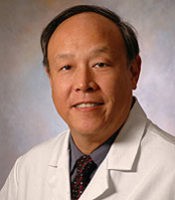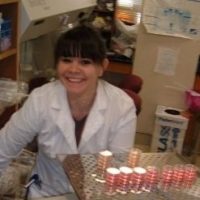12 Apr Small Intestinal Microbiome Adjusts To Dietary Fats and Sugar
MedicalResearch.com Interview with:
Eugene B. Chang, MD
Martin Boyer Professor of Medicine
Knapp Center for Biomedical Discovery
University of Chicago
Chicago, IL 60637 and
Kristina Martinez-Guryn, Ph.D., R.D.
Assistant Professor
Biomedical Sciences Program
Midwestern University
Downers Grove IL
MedicalResearch.com: What is the background for this study? What are the main findings?
Dr. Martinez-Guryn: The original goal of this study was to understand why mice devoid of all microorganisms (germ free mice) are protected from diet-induced obesity. We demonstrate that these mice display severely impaired lipid absorption even when fed a high fat diet.
Dr. Chang: We found that many of the processes of dietary lipid digestion and absorption are dependent on and modulated by the gut microbiome which itself responds to dietary cues to adjust the small intestine’s ability and capacity to handle dietary lipids appropriately. This interplay is important for general health, but the findings are also relevant to conditions of overnutrition (obesity, metabolic syndrome) and undernutrition (starvation, environmental enteropathy). In conditions of overnutrition, high fat, simple sugar, low fiber foods typical of western diets promote small intestinal microbes (which have been largely neglected by the scientific community) that promote fat digestion and absorption. This increases our capacity to assimilate dietary fats which can contribute to the overnutrition problem. In conditions of undernutrition, these types of gut microbes are lost or minimally represented. Thus, when nutritional repletion is started, the gut’s ability to upregulate its capacity for dietary lipid digestion and absorption is compromised.
MedicalResearch.com: What should readers take away from your report?
Dr. Chang: Small intestinal microbes play a major role in adjusting our ability and capacity for nutrient digestion and absorption. The types of microbes that individuals may have can therefore contribute to conditions of health and disease.
MedicalResearch.com: What recommendations do you have for future research as a result of this work?
Dr. Martinez-Guryn: We’re only scratching the surface with this study. We are planning to undertake similar studies in human subjects (this study was performed in mouse models). We believe that we can leverage this knowledge to develop microbiome-based interventions to maintain good health and to treat many types of nutritional disorders.
Disclosures; No disclosures that are relevant to this topic. Our studies were supported by grants from the National Institute of Digestive Diseases, Diabetes, and Kidney (NIDDK).
Citations:
Kristina Martinez-Guryn, Nathaniel Hubert, Katya Frazier, Saskia Urlass, Mark W. Musch, Patricia Ojeda, Joseph F. Pierre, Jun Miyoshi, Timothy J. Sontag, Candace M. Cham, Catherine A. Reardon, Vanessa Leone, Eugene B. Chang. Small Intestine Microbiota Regulate Host Digestive and Absorptive Adaptive Responses to Dietary Lipids. Cell Host & Microbe, 2018; 23 (4): 458 DOI: 10.1016/j.chom.2018.03.011
[wysija_form id=”3″]
The information on MedicalResearch.com is provided for educational purposes only, and is in no way intended to diagnose, cure, or treat any medical or other condition. Always seek the advice of your physician or other qualified health and ask your doctor any questions you may have regarding a medical condition. In addition to all other limitations and disclaimers in this agreement, service provider and its third party providers disclaim any liability or loss in connection with the content provided on this website.
Last Updated on April 12, 2018 by Marie Benz MD FAAD


